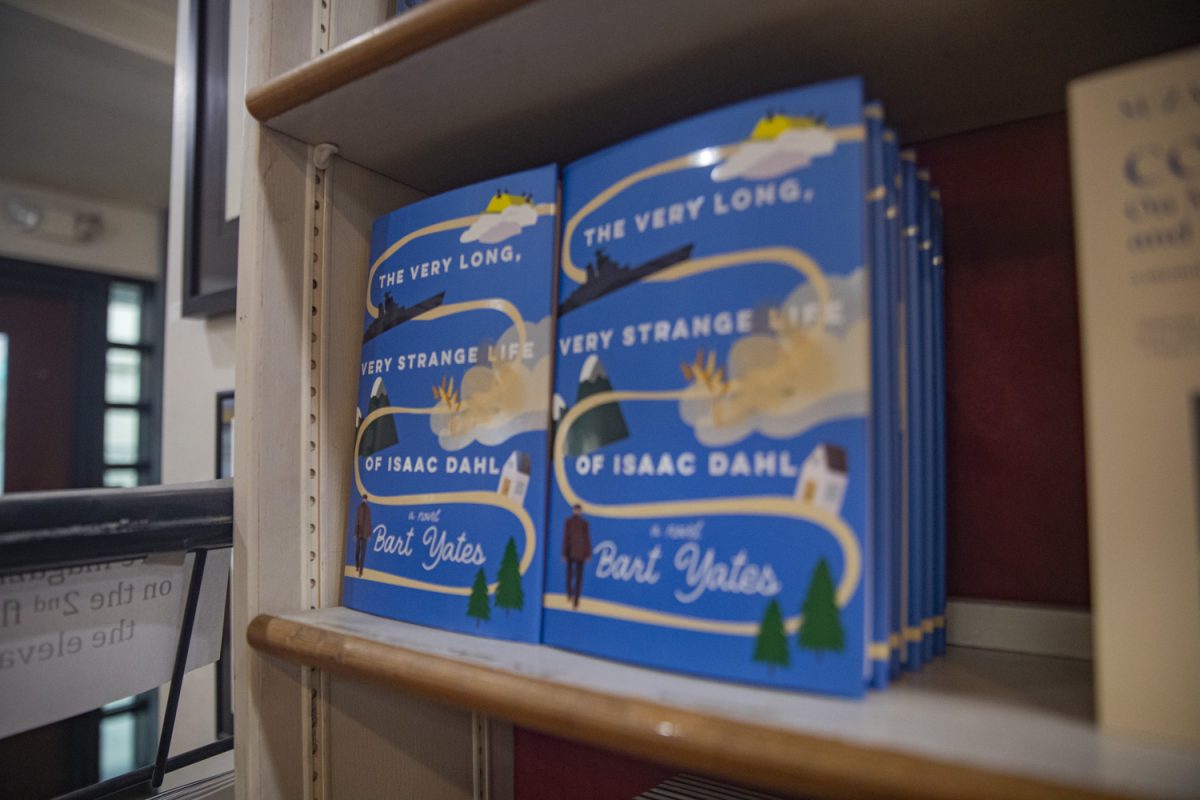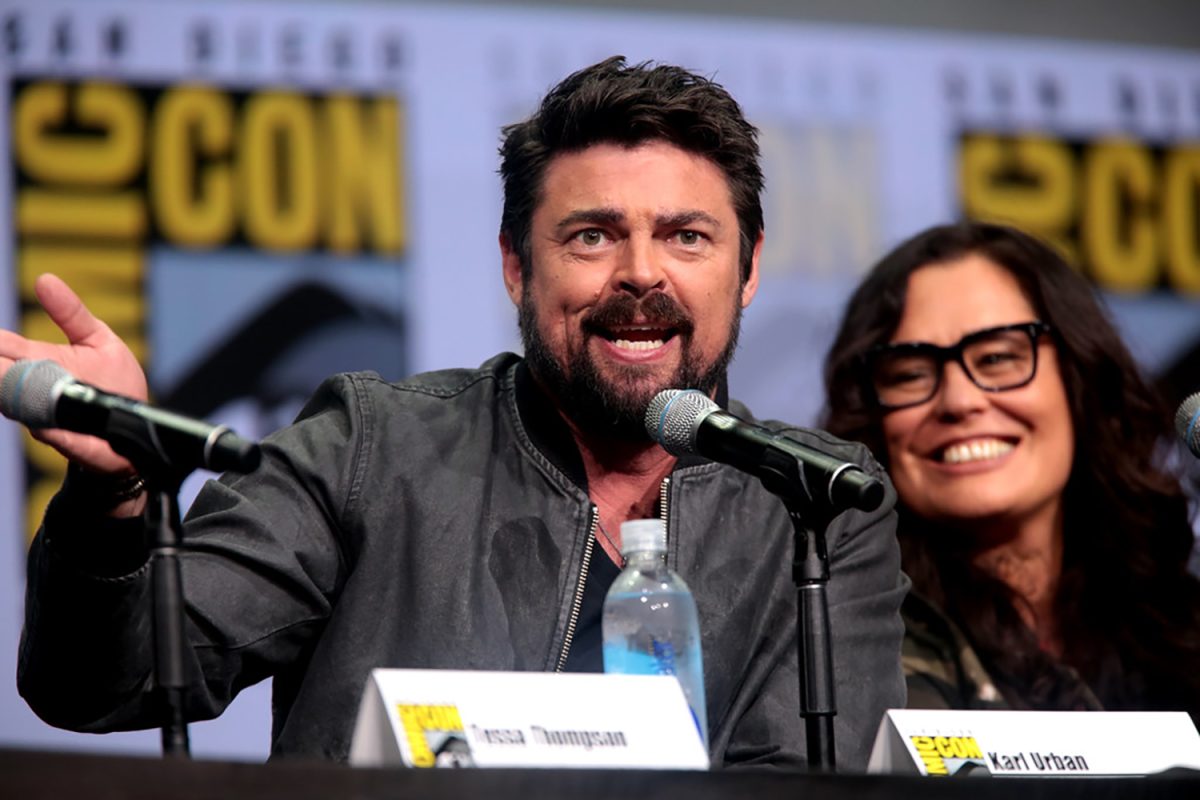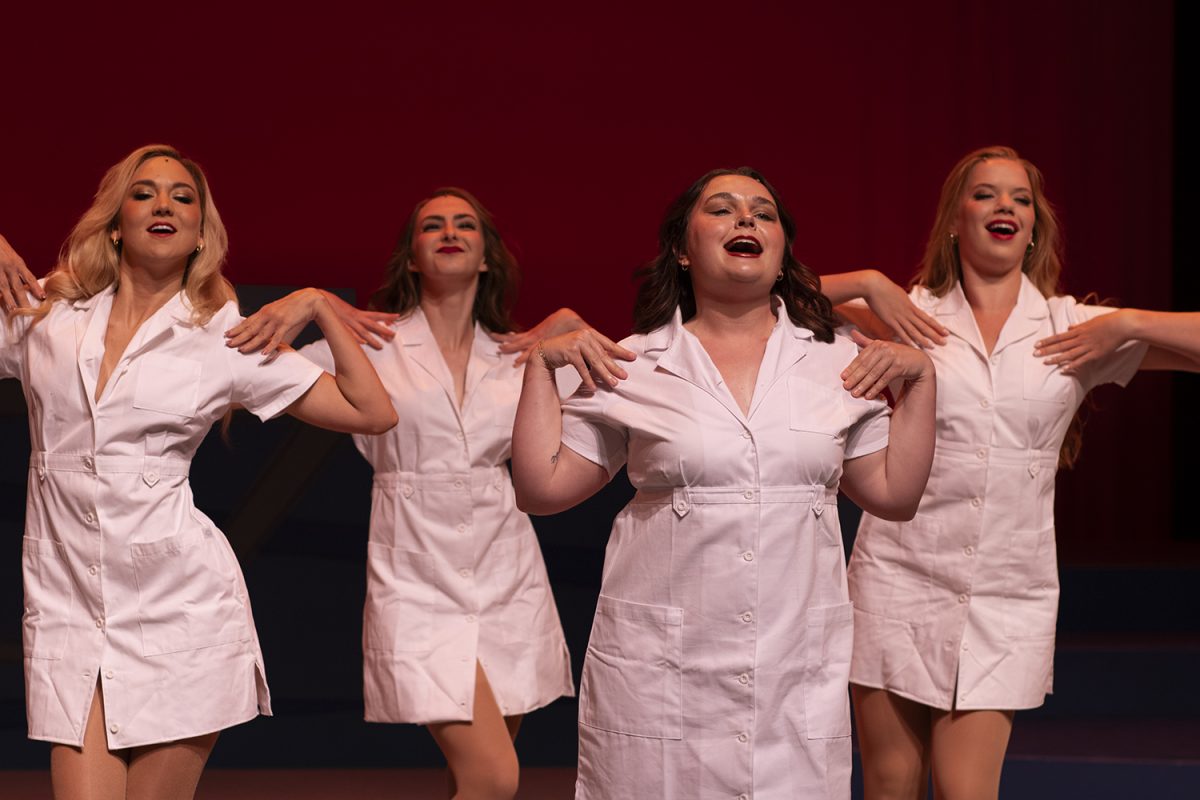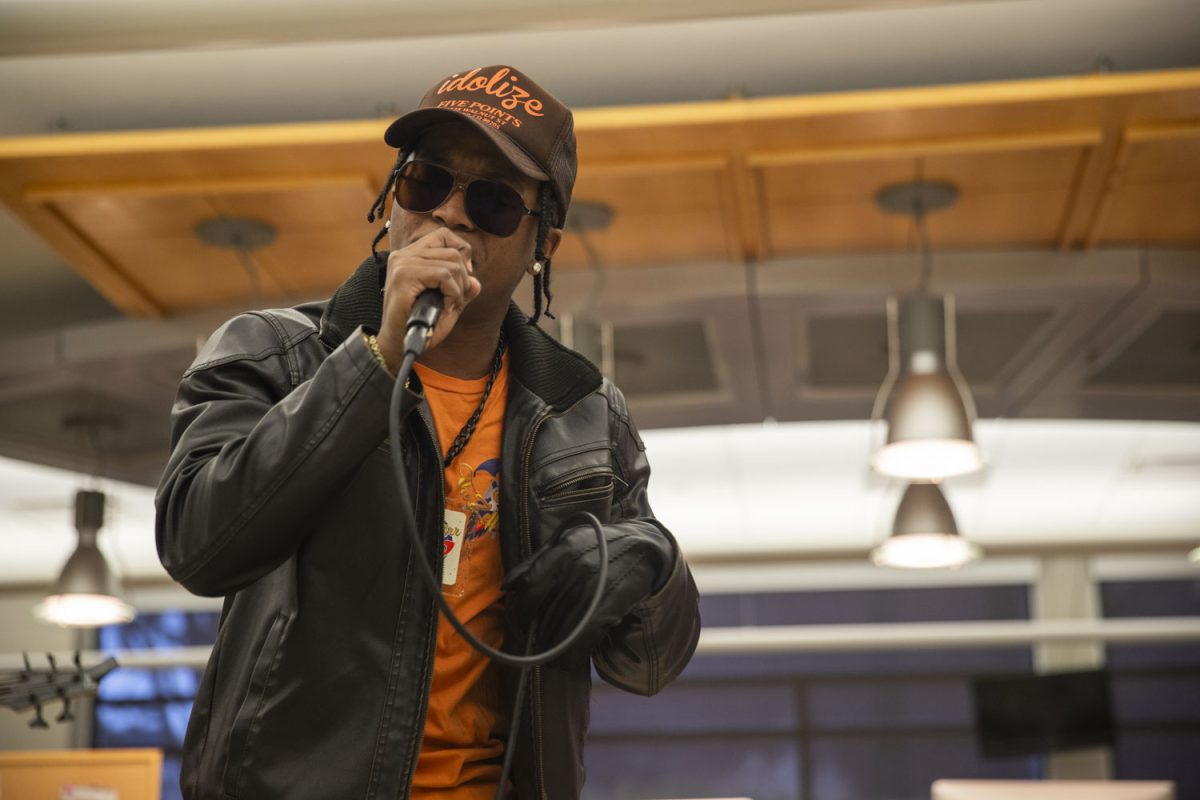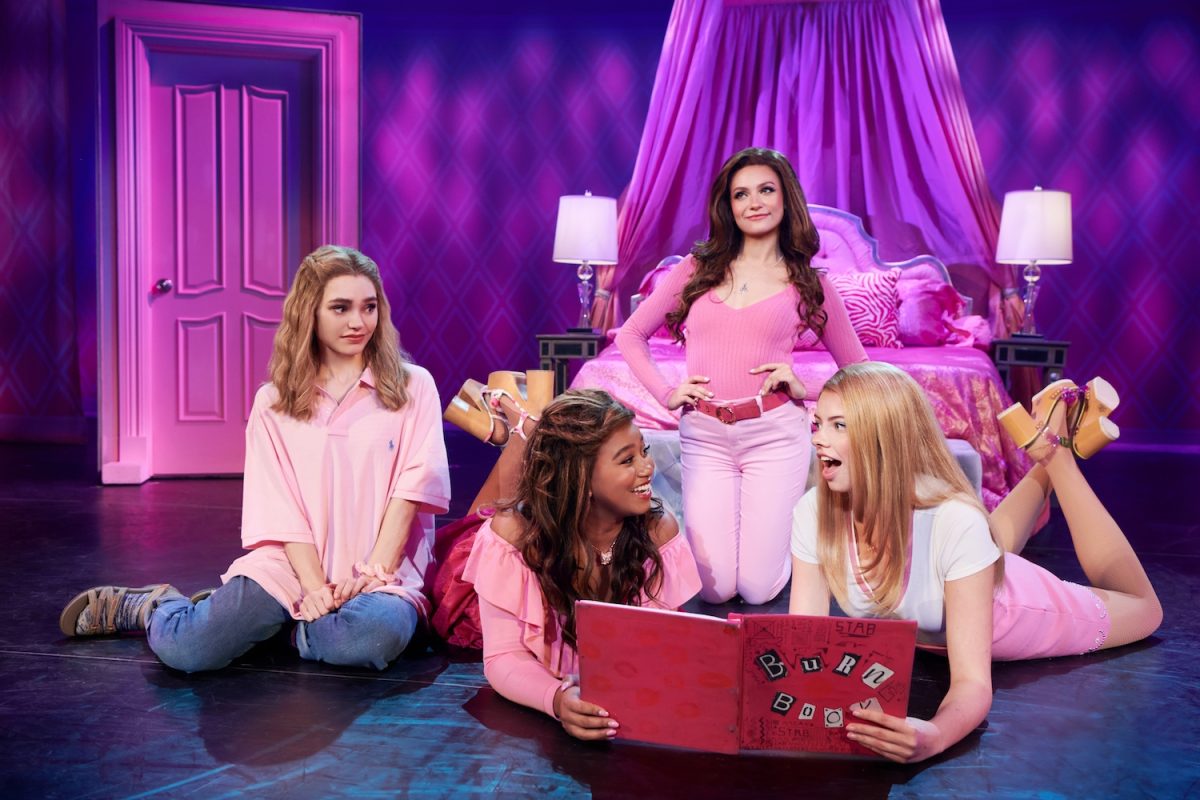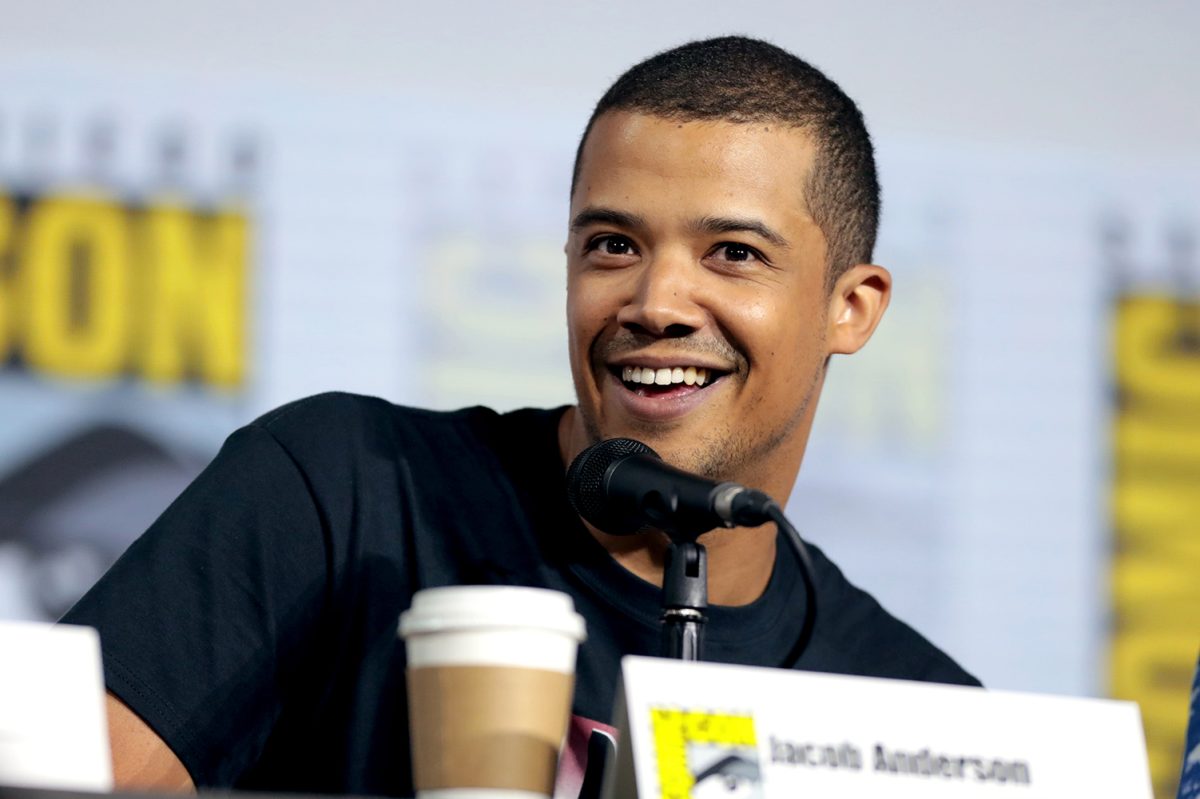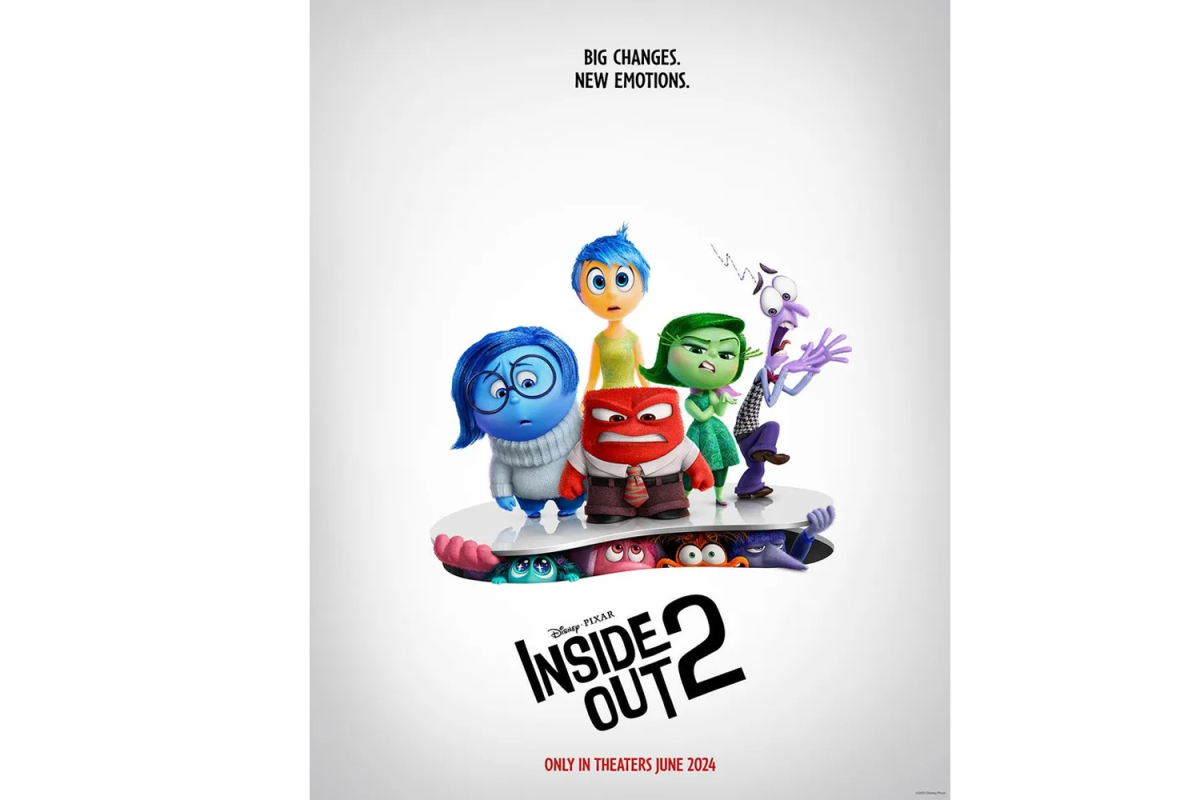As Talking Heads front man David Byrne walked centerstage on the big screen, the recorded crowd greeted him with wild applause, whistles, and cheers. The audience in FilmScene’s theater, however, was silent — eyes were glued to the screen, unwilling to miss a single moment.
The Talking Heads concert film, “Stop Making Sense,” was restored and re-released to theaters last month for its 40th anniversary, immortalizing the concert experience for both longtime fans and new ones.
Kembrew McLeod, professor of communications studies at the University of Iowa, was 13 years old when he saw the original release of the 1984 film in a mall theater. He said he was aware of the rock bank from their radio hits, but after seeing the concert film, he was a bona fide fan.
“Their sound was odd compared to mainstream pop songs that were played on the radio, but their overall persona and image was odd and appealed to people who were misfits like me,” McLeod said of the band.
Since then, music has been woven through his life. He has worked in record stores, written for MTV, Popular Music, and Rolling Stone Magazine, and authored several books and documentaries about the music industry.
Although McLeod’s misfit identity was typical of most 13-year-olds, Byrne’s teenage angst stemmed from a more specific experience.
Byrne’s iconic dance moves were unlike any other artists. His strange movements seemed more like a personification of his music than rehearsed choreography. Byrne seemed electrified by sound and needed to express it by stomping his feet, spinning around his microphone and, at one point, running laps around the stage.
Even in the filmed version of the concert, the energy was palpable and relentless. Talking Heads was ahead of its time both in music and culture.
RELATED: Iowa City princess-punk band Early Girl makes music for all
“They helped create a template that others began to build on, and I think that’s why they still resonate today,” McLeod said.
The film opened with Byrne performing solo, joined by another band member as each song progressed. After the core members emerged, other collaborating artists came to the stage. Among them were musicians Steve Scales, Ednah Holt, and members of the band Parliament-Funkadelic Bernie Worrell and Lynn Mabry — all of whom are Black.
In the 1980s, radio was largely segregated into pop radio and “urban pop,” which used to describe “Black music,” McLeod explained.
In the same vein, and much to the criticisms of David Bowie, the early days of MTV wouldn’t play Michael Jackson or Prince because of the belief that Black artists could not do pop music.
“What I think the Talking Heads were doing with the film is setting an example of cross-cultural collaborations that can actually work and not sound forced,” McLeod said.
FilmScene employee Bob Pentuic said the audience for the 40th-anniversary release has been “a mix of music nerd college students and 50-year-olds who saw it when it came out, and everyone loves it.”
Robert Rysz, a second-year student at the UI, went to see the film because a favorite high school teacher introduced him to Talking Heads. After seeing it for the first time, Rysz fell in love and went to see it again —and then again, this time bringing a group of friends.
“I find it to be probably the best expression of music visually that I’ve ever seen, more so than any music video or any music-related media,” Rysz said. “It’s incredible.”






